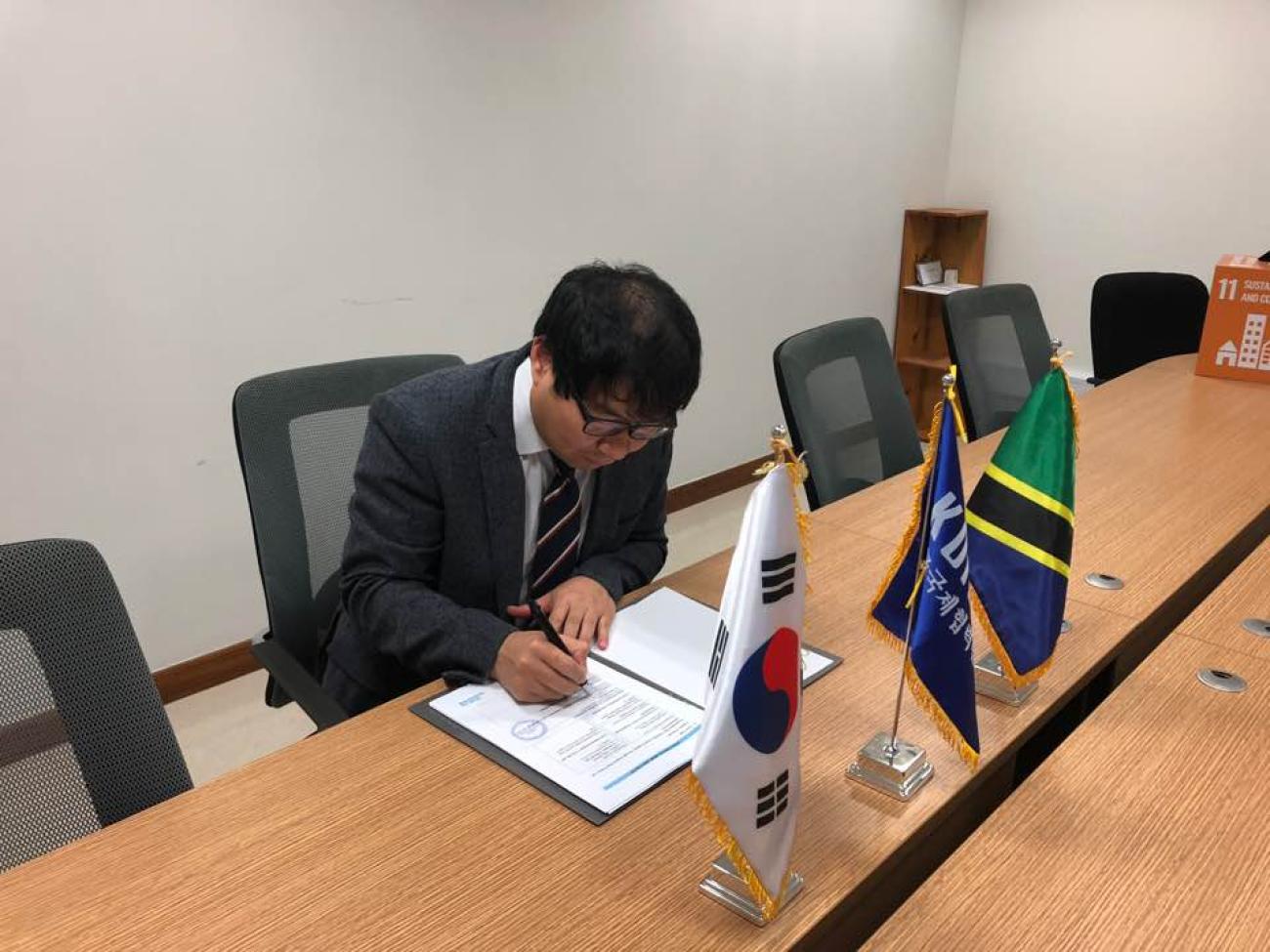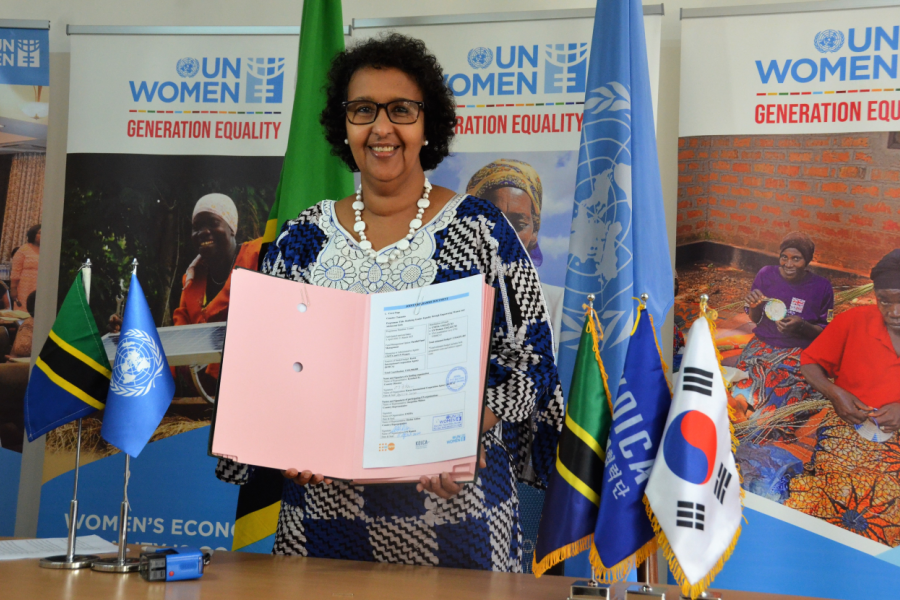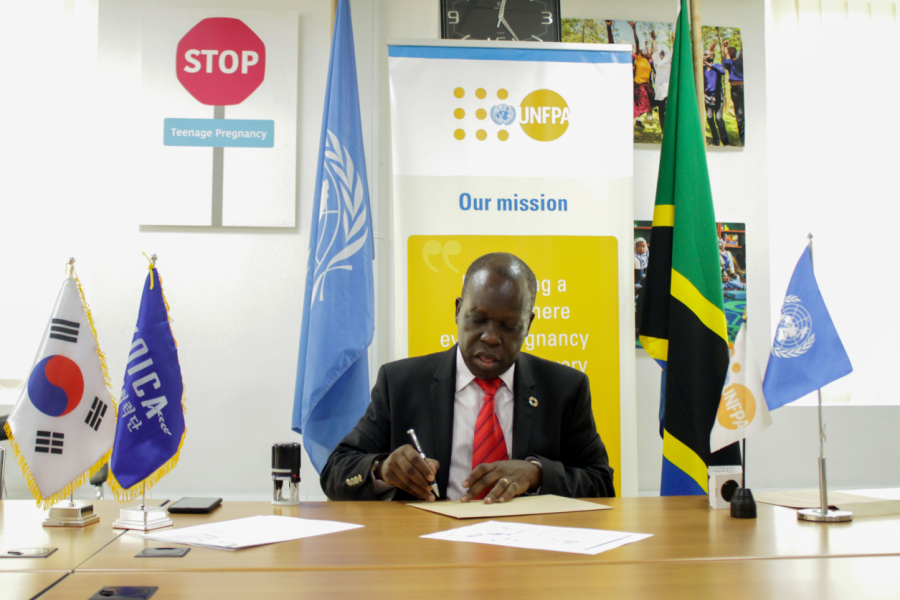KOICA Partners with UNFPA and UN Women to Empower Women and Adolescent Girls

KOICA to provide $5 million of support for women and girls in Singida and Shinyanga
Today the Korea International Cooperation Agency (KOICA) in Tanzania has signed agreements with the United Nations Entity for Gender Equality and the Empowerment of Women (UN Women) and the United Nations Population Fund (UNFPA) in Dar es Salaam to support a new US$ 5 million Joint Programme entitled “Realizing Gender Equality through Empowering Women and Adolescent Girls”.
The signing ceremony comes at a time when the global community is battling the COVID-19 pandemic that has so far claimed thousands of lives the world over. The coronavirus pandemic, which has now reached Tanzania, will change the lives of many people in the country, while its impacts – both short- and long-term – may be felt most disproportionately by women and adolescent girls, with existing gender-based inequalities exacerbated by the outbreak.
Starting in April 2020 through March 2023, UNFPA and UN Women will work together to strengthen the social and economic resilience of some of the furthest behind rural women and adolescent girls in Ikungi District, Singida Region and Msalala District, Shinyanga Region.
UN Women will focus on economically empowering women and female youth farmers by improving agricultural production, collective marketing and entrepreneurship skills; and enhancing land tenure security, addressing both the short- and long-term economic shocks of the COVID-19 pandemic.
UNFPA will support efforts to strengthen the capacity of frontline actors – health workers, the police – and communities to prevent and respond to gender-based violence (GBV) and all harmful practices – which often increase during times of crisis – ensuring that survivors can access the comprehensive and respectful care and services they need to start rebuilding their lives.
Through this Joint Initiative, a total of 2,350 women and adolescent girls will directly benefit from the synergetic interventions of women’s economic empowerment and GBV prevention and response. In addition, outreach campaigns to promote women’s economic agency, land rights and the prevention of and
response to all forms of GBV and harmful practices are expected to reach more than 40,000 people in both regions. Further, a total of 6,000 women and men in four villages located in Ikungi District will benefit from the land tenure security initiative that will support them to acquire Certificates of Customary Rights of Occupancy (CCROs).
In his remarks during the virtual signing ceremony, the KOICA Country Director, Mr Eo said: “As Korean Government agency for international development, one of KOICA’s founding objectives is to promote the realization of gender equality and women’s rights as well as to reduce poverty and improve communities’ livelihoods. Through our strong partnership with the Government of the United Republic of Tanzania in the area of gender equality and women’s empowerment, we are pleased to partner with UN Women and UNFPA to further promote the advancement of women and girls in the two regions,” Mr Eo said.
On his side, the UN Resident Coordinator, Mr. Zlatan Milišić, commended KOICA for their support. “Women & girls may be most affected by COVID-19 as the virus may make gender-based inequalities even worse. We thank KOICA for signing a this agreement with UNFPA and UN Women to support empowering women & adolescent girls in Singida & Shinyanga,” said Mr. Milisic.

The UN Women Representative, Ms. Hodan Addou said the joint efforts will contribute to Tanzania’s progress in Sustainable Development Goal 5 on Gender Equality and Empowerment of All Women and Girls. She further explained that the Joint Initiative will incidentally contribute to the United Nations Framework seeking to provide urgent socio-economic interventions to save lives and secure livelihoods for the quick recovery of communities affected by COVID-19.
Dr. Wilfred Ochan, UNFPA Deputy Representative in Tanzania, said while it is too early to say what the long-lasting impacts of COVID-19 will be, there is a danger that advances in gender equality could stall or even reverse. The Joint Programme will seek to build on progress towards realizing national and global commitments to advance gender equality, particularly to end all GBV and harmful practices against women and girls by 2030.
“Gender-based violence remains a barrier to sustainable and inclusive development. It prevents women and girls upholding their rights, maintaining their health, seeking opportunities and realizing their full potential – and there is a danger that it could increase during the COVID-19 outbreak. The global goals to achieve gender equality and end all forms of GBV and harmful practices by 2030 are now more relevant than ever and, together with our partners in support of the Government, we hope that we can turn this crisis into an impetus to achieve these.”









